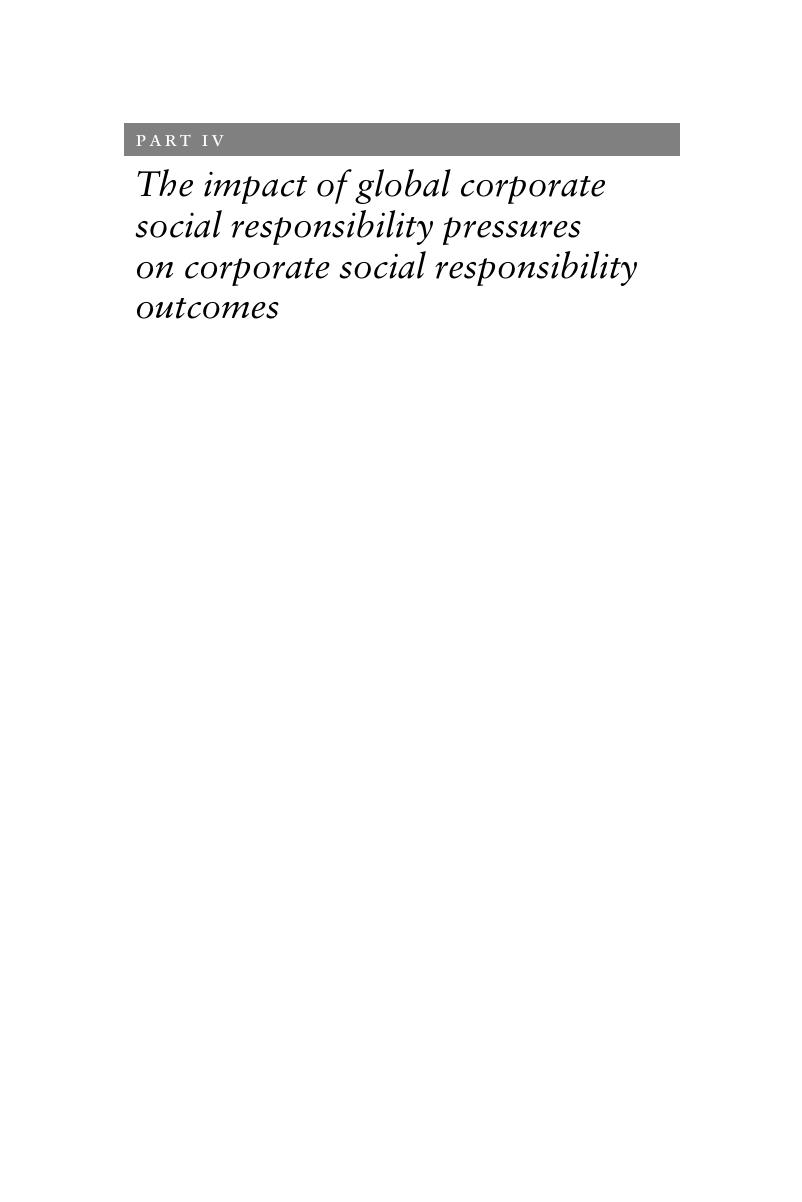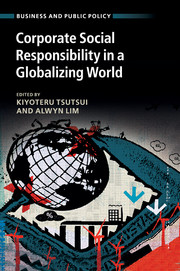Book contents
- Corporate Social Responsibility in a Globalizing World
- Business and Public Policy
- Corporate Social Responsibility in a Globalizing World
- Copyright page
- Dedication
- Contents
- Figures
- Tables
- Notes on contributors
- Book part
- 1 The social regulation of the economy in the global context
- Part I Legitimation and contestation in global corporate responsibility
- Part II Social construction and field formation in global corporate social responsibility
- Part III Corporations’ reaction to global corporate social responsibility pressures
- Part IV The impact of global corporate social responsibility pressures on corporate social responsibility outcomes
- Index
- References
Part IV - The impact of global corporate social responsibility pressures on corporate social responsibility outcomes
Published online by Cambridge University Press: 05 May 2015
- Corporate Social Responsibility in a Globalizing World
- Business and Public Policy
- Corporate Social Responsibility in a Globalizing World
- Copyright page
- Dedication
- Contents
- Figures
- Tables
- Notes on contributors
- Book part
- 1 The social regulation of the economy in the global context
- Part I Legitimation and contestation in global corporate responsibility
- Part II Social construction and field formation in global corporate social responsibility
- Part III Corporations’ reaction to global corporate social responsibility pressures
- Part IV The impact of global corporate social responsibility pressures on corporate social responsibility outcomes
- Index
- References
Summary

- Type
- Chapter
- Information
- Corporate Social Responsibility in a Globalizing World , pp. 363 - 472Publisher: Cambridge University PressPrint publication year: 2015



